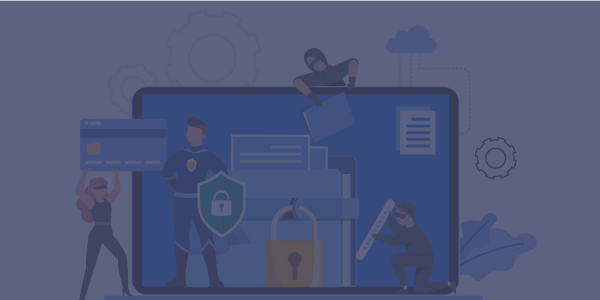In today's high-risk cybersecurity landscape, it is paramount for companies to provide security awareness training to their employees. According to Verizon's 2022 Data Breach Investigations Report, 82% of data breaches involve human involvement, ranging from direct information exposure to indirect errors that enable cybercriminals to gain access to company systems.
Global regulatory frameworks such as the California Consumer Privacy Act (CCPA), the Health Insurance Portability and Accountability Act (HIPAA) and the Singapore Personal Data Protection Act (PDPA) mandate security awareness training for compliance. However, even when compliance is not mandatory, organizations can enhance their security by equipping their employees with the necessary tools and training. This process should begin during the onboarding stage, which is crucial for an employee's success within a company.
Onboarding usually involves a lot of paperwork, meetings, introductions, note-taking, and comprehending the company's structure, products, and services. However, one aspect that is often overlooked is the employee's responsibility in maintaining the employer's data security, unless they are specifically hired for that purpose.
Establishing a Foundation: Building a Strong Base for Data Security
To make the onboarding program truly effective, it is crucial to provide new hires with more than just the basics such as handbooks, policies, directories, and paperwork. They should be given an immersive and interactive experience that enables them to connect with the company's culture and their coworkers. Most importantly, they need to be educated about company security, compliance policies, and the best security practices. Incorporating elements such as mentoring, coaching, open communication, and security awareness training will help build trust with new hires and equip them to serve as the company's first and strongest line of defense against data breaches.
Beyond Policies: Creating a Culture of Data Privacy
Many companies have developed checklists to ensure that new hires feel comfortable and supported in their new positions. However, many of these lists only focus on policies that should be reviewed, including staff security awareness training. If the organization only mentions these policies in passing or hands new employees a document to read and sign to tick a box on the checklist, they are missing an opportunity to connect with employees and build comprehensive awareness for better digital hygiene.
For instance, just as one wouldn’t let their 16-year-old drive a car without ensuring they have the proper training and coaching required for operating a vehicle, onboarding also requires similar preparations. The proper training for a teenager would include reviewing the vehicle's manual, taking and passing a driving test to demonstrate their competency, and finally obtaining a license. Therefore, to ensure their teenager is a safe driver, parents invest time and resources to educate them and ride along with them to help overcome challenges if any.
Similarly, a company would not expose its digital assets to a new hire without taking the necessary steps to educate and prepare them for possible dangers. In the case of onboarding, "ride along" means ensuring they are engaged, feel connected to the company's vision and mission, and have everything they need to be safe, secure, and successful from day one.
Enhancing Data Security Resilience
Educating employees on how to identify digital threats is a critical aspect of data security. For instance, social engineering is a tactic used by hackers to trick employees into divulging their login credentials, which can lead to a security breach. Therefore, employees need to be equipped with the knowledge to identify phishing emails, text messages, or phone calls and know what to look for in such scams.
Moreover, it's essential to recognize that security awareness training for new employees should go beyond computer screens. Employees must keep in mind that a thumb drive found in the office parking lot may not be a harmless device but can be a vessel for malware that poses a significant threat to the company's network.
Failing to recognize potential security gaps leaves a company vulnerable to data breaches. Therefore, it's crucial to instill a strong culture of data privacy training and make it an integral part of the company's ethos. To bridge this gap, we have compiled a list of areas that companies can address with new employees, paving the way for a more secure future.
1) Establishing Employee Data Security Expectations: One of the most important aspects of data security is making sure that employees understand their roles and responsibilities in safeguarding company data. To achieve this, it is essential to provide clear descriptions of what they should and should not do. Additionally, it is important to outline the consequences of not adhering to the company's data security policies. 2) Lock Screen Passcodes: Unattended and/or unlocked devices with access to the company network pose a significant threat. Anyone with access to an unlocked device might be able to see and misuse private company data, or install malware. To prevent this, companies should implement a policy that requires lock screen authorization, such as a passcode or authentication device. This can help keep hackers and data thieves at bay. 3) Bring Your Own Device (BYOD) Guidelines: If a company allows personal devices on the network, it is important to clearly define which devices are acceptable. In addition, it is crucial to list the necessary precautions that users of such devices must take before joining the company network. For example, such devices should have up-to-date on-device malware protection, current operating system and app security patches, and other security measures in place. 4) Real-Life Examples and Practice: Effective training requires relatable examples that employees can connect with. Real-life case studies provide relevant examples to educate employees about the best security practices. Additionally, simulation is a valuable tool for employee development, allowing them to practice identifying and responding to potential threats in a controlled environment.Speeding up the onboarding process may seem appealing, especially after a demanding selection process, but it is crucial to avoid rushing or omitting training opportunities, particularly with respect to the company's security and compliance. The cost savings from cutting corners may ultimately be insignificant compared to the potential damage caused by a data breach. Investing in thorough onboarding can help protect the company from the very beginning with each new employee.
Author: Sagnik Mukherjee, Legal Associate, Rainmaker Directions and Contributions: Akanksha Arora, AVP-Legal, Rainmaker
Disclaimer : No information contained in this website may be reproduced, transmitted, or copied (other than for the purposes of fair dealing, as defined in the Copyright Act, 1957) without the express written permission of Rainmaker Online Training Solutions Pvt. Ltd.











